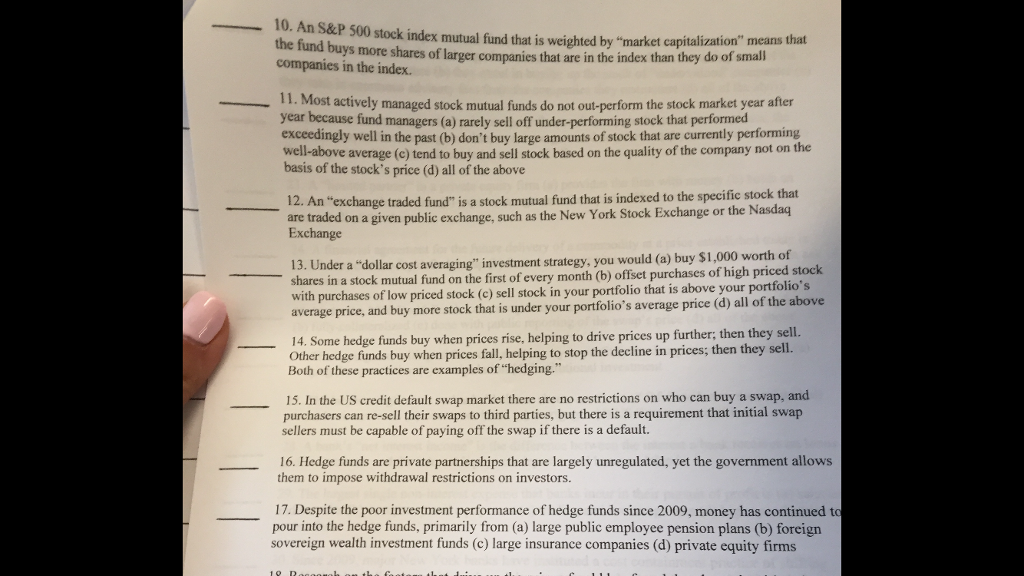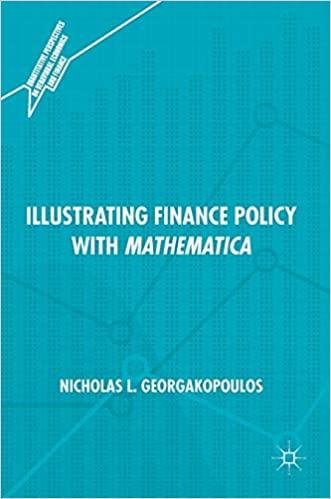Answered step by step
Verified Expert Solution
Question
1 Approved Answer
please do 11, 13, 14, 17 10. An S&P 500 stock index mutual fund that is weighted by market capitalization means that the fund buy

please do 11, 13, 14, 17
10. An S&P 500 stock index mutual fund that is weighted by "market capitalization" means that the fund buy companies in the index. s more shares of larger companies that are in the index than they do of small 11. Most actively managed stock mutual funds do not out-perform the stock market year after year because fund managers (a) rarely sell off under-performing stock that performed exceedingly well in the past (b) don't buy large amounts of stock that are currently performing well-above average (c) tend to buy and sell stock based on the quality of the company not on the basis of the stock's price (d) all of the above 12. An "exchange traded fund" is a stock mutual fund that is indexed to the specific stock that are traded on a given public exchange, such as the New York Stock Exchange or the Nasdag Exchange 13. Under a "dollar cost averaging" investment strategy, you would (a) buy $1,000 worth of shares in a stock mutual fund on the first of every month (b) offset purchases of high priced stock with purchases of low priced stock (c) sell stock in your portfolio that is above your portfolio's average price, and buy more stock that is under your portfolio's average price (d) all of the above 14. Some hedge funds buy when prices rise, helping to drive prices up further; then they sell. Other hedge funds buy when prices fal, helping to stop the decline in prices; then they sell. Both of these practices are examples of "hedging." 15. In the US credit default swap market there are no restrictions on who can buy a swap, and purchasers can re-sell their swaps to third parties, but there is a requirement that initial swap sellers must be capable of paying off the swap if there is a default 16. Hedge funds are private partnerships that are largely unregulated, yet the government allows them to impose withdrawal restrictions on investors. 17. Despite the poor investment performance of hedge funds since 2009, money has continued t pour into the hedge funds, primarily from (a) large public employee pension plans (b) foreign sovereign wealth investment funds (c) large insurance companies (d) private equity firmsStep by Step Solution
There are 3 Steps involved in it
Step: 1

Get Instant Access to Expert-Tailored Solutions
See step-by-step solutions with expert insights and AI powered tools for academic success
Step: 2

Step: 3

Ace Your Homework with AI
Get the answers you need in no time with our AI-driven, step-by-step assistance
Get Started


